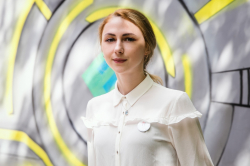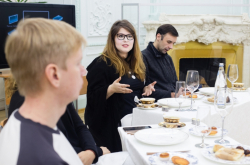What is cancer prevention
The words "prevention" and "cancer" are rarely found in one sentence. Usually someone begins to acknowledge cancer, read about it and talk about it openly only once they have been diagnosed themselves. And while this problem is not there, it is easier and much more pleasant not to think about this disease, and ignore it completely. However, cancer can “happen” to anyone: it’s not some kind of illness that comes after you have wet your feet and which can easily be predicted. Therefore, it’s important to educate people on what kind of illness it is, why it appears, how to identify it and, most importantly, how to prevent it. Although at the end of the day it’s impossible to predict whether you will get cancer as there are many factors but everyone can reduce the risk of this disease for themselves and their loved ones. As it’s reported on the website of the World Health Organization, one third of all cancer cases are preventable.
Сancer prevention can be primary, secondary and tertiary, explain Ksenia Zhirnova and Elizaveta Dubovik. Primary prevention is general prevention: when risk factors are eliminated and the disease doesn’t originate at all. The main risk factors of cancer include:
-
prolonged exposure to the sun or other sources of ultraviolet radiation;
-
ionizing radiation;
-
smoking;
-
alcohol;
-
malnutrition (excessive consumption of fatty and salty foods and red meat);
-
obesity;
-
Infections (WHO website reports that Viral Hepatitis B and C might lead to liver cancer, Human Papillomavirus might contribute to the development of cervical cancer and Helicobacter Pylori bacterium might increase the risk of developing stomach cancer);
-
lack of physical activity.

Source: shutterstock.com
Thus, vaccinations against various infections, such as Human Papillomavirus, are a part of primary cancer prevention.
Secondary prevention is aimed at screening - early diagnosis of cancer. There are two kinds of cancer screening: opportunistic (random) and organized (population screening). And while the former can’t help reducing cancer-related deaths on a national scale, the latter can. But in order for it to be effective one needs to know how it should be organized and what specific groups of people should be targeted and undergo the examination. The question is: how should these groups be identified?
First and foremost, it’s necessary to identify the risk groups among people. For example, before conducting a screening aimed at diagnosis of colon and rectal cancer, one should first make people take stool tests, which determines whether certain blood constituents are present in it. And if they are present, the risk of having cancer in such patients multiplies. At the same time, such tests should be conducted for all people over 50 years of age.
Russia has a number of screening programs for early detection of cancer, which to some extent fit the definition of a screening: for instance, mammography, fecal occult blood test, cervical cytology. According to TASS (leading Russian information agency - Ed.), the following tests can reduce different etiology cancer mortality rates: mammography reduces mortality from breast cancer in women over 50 years by 30%, on average; liquid-based cytology test reduces death rate from cervical cancer by an average of 80% and fecal occult blood test reduces death-toll from colon and rectum cancer by 15%, on average.
However, these screening programs are not effective enough. The fact is that not all Russians go for check-ups which are part of preventive medical examination regularly. The majority of people only go for such medical check-ups only one or two times in their life-time and some neglect it all together. Population screening can actually work and contribute to reducing cancer mortality only if the same people undergoes regular medical check-ups. Therefore, it is necessary to widely inform the population about what screening is, how it is conducted, why it is important, stresses Elizaveta Dubovik.
Tertiary prevention is namely prevention of cancer relapses. It refers to those patients who have already suffered from cancer and need to monitor their health by doing regular check-ups in order to prevent a relapse or propagation of another type of cancer. Cancer Prevention Foundation (available in Russian), where Ksenia Zhirnova and Elizaveta Dubovik work, promotes only the first two preventive measures: primary and secondary. More about cancer diagnosis here.
Why do we need an educational project on cancer prevention?
"Different media often address our Foundation with the same requests: demystify cancer for their audiences, speak about how to make its prevention easy or ask us to evaluate some new cancer initiative. And we understand quite clearly why this happens: people are very poorly informed about their own health, and the information available to them is often unreliable. Just google "how to cure cancer" in Russian, and you will immediately get redirected the “world” of baking soda, prayers and dill water. Serious materials that rely on evidence-based medicine get published also, but, firstly, there are only few of them, and secondly, they do not give thorough information on all cancer-related issues. However, if you conduct the same internet search in English, special guides for cancer patients will be among the first search results. They are edited and published by largest associations of oncological clinics. NCCN (The National Comprehensive Cancer Network), for instance, publishes such guides for most types of cancer. These guides explain what cancer is, where it comes from, how it is treated and so on - step by step, in a very accessible language," - Ksenia Zhirnova comments.
Ilya Fomintsev, executive director of the previously mentioned “Ne naprasno” foundation, came up with the idea of making an educational site about cancer prevention because he had been constantly confronted by media who requested him to "debunk the existing cancer myths". However, the indirect survey data acquired by the foundation show that not all oncologists who are just starting their medical careers are adequately aware of how to even treat cancer or how to behave with oncological patients.

Higher School of Oncology Students
The foundation has established the Higher School of Oncology. The goal of this organization is to educate a new generation of oncologists who can reform our national healthcare by conveying new approaches to prevention, diagnosis and treatment of oncological diseases. Participants of the project who are graduates of Russian medical universities, get an opportunity to undergo free two-year residency training at the Petrov Research Institute of Oncology in St. Petersburg. All students of this program receive scholarships, get a chance to be lectured by leading Russian and foreign oncologists, study current research literature, get to work on modern diagnostic and therapeutic equipment and become interns at Russian and foreign medical centers. However, Higher School of Oncology has a very strict selection.
According to Ksenia Zhirnova and Elizaveta Dubovik, about 300 aspiring doctors participate in this selection process annually, since 2015. About 50 candidates get eliminated at the first stage only: after filling out the questionnaire. The second stage is much more complicated. Applicants are invited to solve five medical cases - and that includes choosing the right treatment strategy and coming up with a possible diagnosis. The cases are usually quite standard, and the contestants are expected to explain what they will do in a given situation. Interesting fact: at last year’s selection only 8.5% of contestants did not "kill" their patients at the qualifying stage, Ksenia and Elizaveta report. And all cases and results of the qualifying stage were verified by a pool of experienced experts.
Future readers of Profilaktika.Media: who are they? And what content will the platform provide?
Ksenia Zhirnova and Elizaveta Dubovik are sure that the new educational resource will be beneficial not only for cancer patients and their relatives, but for young doctors, as well.
"Another problem we identified is that the textbooks for medical students become outdated very quickly. According to some reports, approximately 72 relevant medical articles get published in various scientific journals every day. Even if a student or a practicing doctor wants to keep abreast of the latest medical news in their field, they physically won’t have enough time to read all the latest materials. In addition to that, there are many doctors who reside in remote parts of Russia and simply don’t have access to current medical literature for a number of reasons; so their search is limited to what is available on the internet," - Elizaveta explains.

Ksenia Zhirnova and Elizaveta Dubovik
Therefore, Profilaktika.Media will feature content for both doctors and their patients: reference articles containing information about different types of cancer, their treatment and prevention. The two young women promise to contribute to the site also by writing expanded materials with background on all major break-through oncology news. Reference information will be accompanied by interviews with doctors about their life and chosen profession. There will be stories, analysing best treatment practices, as well.
Scientifically customized materials will be overviewed by the experts from the Cancer Prevention Foundation, including medical residents, alumni and partners of the Higher School of Oncology. For the record, students of the Higher School of Oncology already publish popular science aterials, share interesting videos on the prevention and treatment of cancer in a specialized VK community (available in Russian). Young doctors are doing all this in their spare time.
"Doctors play a crucial role in the cancer prevention promotion. After all, which article are you going to believe more: the one written by a journalist or by an oncologist? Therefore, all scientific materials on our website will be either written or edited by specialists in the field of oncology," - Ksenia adds.
The launch of Profilaktika.Media is scheduled for February 4, 2018 - World Cancer Day. The content for this site is already being developed and web-designers are working on its structure and appearance. The Presidential grant will cover about a third of the portal’s launch costs and will support it during the first year. In addition to that, part of these funds will be allocated for the site’s internet promotion. Profilaktika.Media’s launch will be announced by the partners of the Cancer Prevention Foundation and mass-media.
Elizaveta and Ksenia are planning to make the portal not only a source of valuable information for people. They have a launch of a second opinion service there in mind, as well as creating an online platform through which cancer patients and their family members can receive moral support and exchange information. The two ITMO students see their main goal (together with the “Ne naprasno” foundation) in informing the Russian audiences about cancer prevention on a large scale.
How is science communication specialists’ work conducted at the foundation?
Elizaveta and Ksenia joined Cancer Prevention Foundation after its Director gave a lecture on oncoepidemiology as part of their course "Modern Science and Scientific Forecast" at ITMO. Ilya Fomintsev suggested that the two ITMO students conduct their own research. One of these two papers was on the anti-vaccination movement. After that, Elizaveta started her work at the Foundation.
"The organization needed people who would promote cancer prevention ideas in mass-media. In addition to that, I immediately became part of the team and started working on other projects. The foundation has quite a portfolio of projects. After some time we started working together with Ksenia. It took us a while to get familiar with cancer prevention issues, but Ilya Fomintsev has generously spared his time and explained all intricacies of cancer prevention to us. And so have the students of the Higher School of Oncology," - comments Elizaveta Dubovik.

Students of Science Communication Master's program at ITMO
Being a part of ITMO’s Master's program allows aspiring science communication specialists to receive expertise of their projects on-the-spot. For instance, Ksenia and Elizaveta discuss their ideas and work on medical cases with their professors and classmates during their study-time. One of their professors, Kirill Artemenko who is the editor-in-chief of an online magazine "Bumaga" and teaches science journalism at their Master’s program, helped the girls plan out Profilaktika.Media project. Scientific research that Ksenia and Elizaveta are conducting as part of their Master's program is also relevant for the Foundation and contributes to its work.
"We are given a wide range of choices of what to work on at the Foundation. And we are not limited in any way, therefore we can join different projects and teams. What we are currently studying at the university, we can immediately apply practically. And vice versa: we can analyze medical cases from our practice in the classroom. This way, we are benefiting and getting expertise from both sides: from our cooperation with oncologists - and media managers," - says Ksenia Zhirnova.





